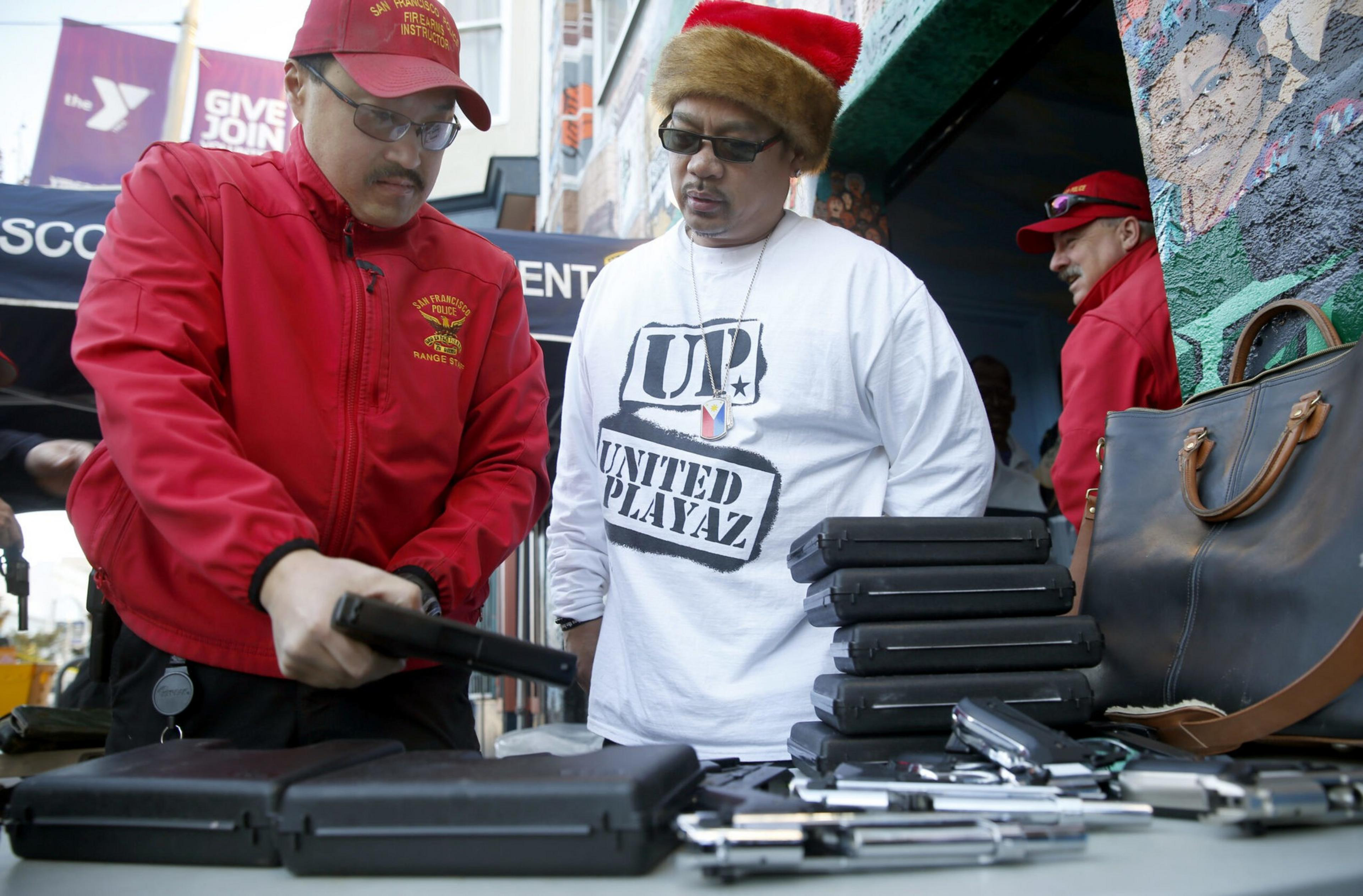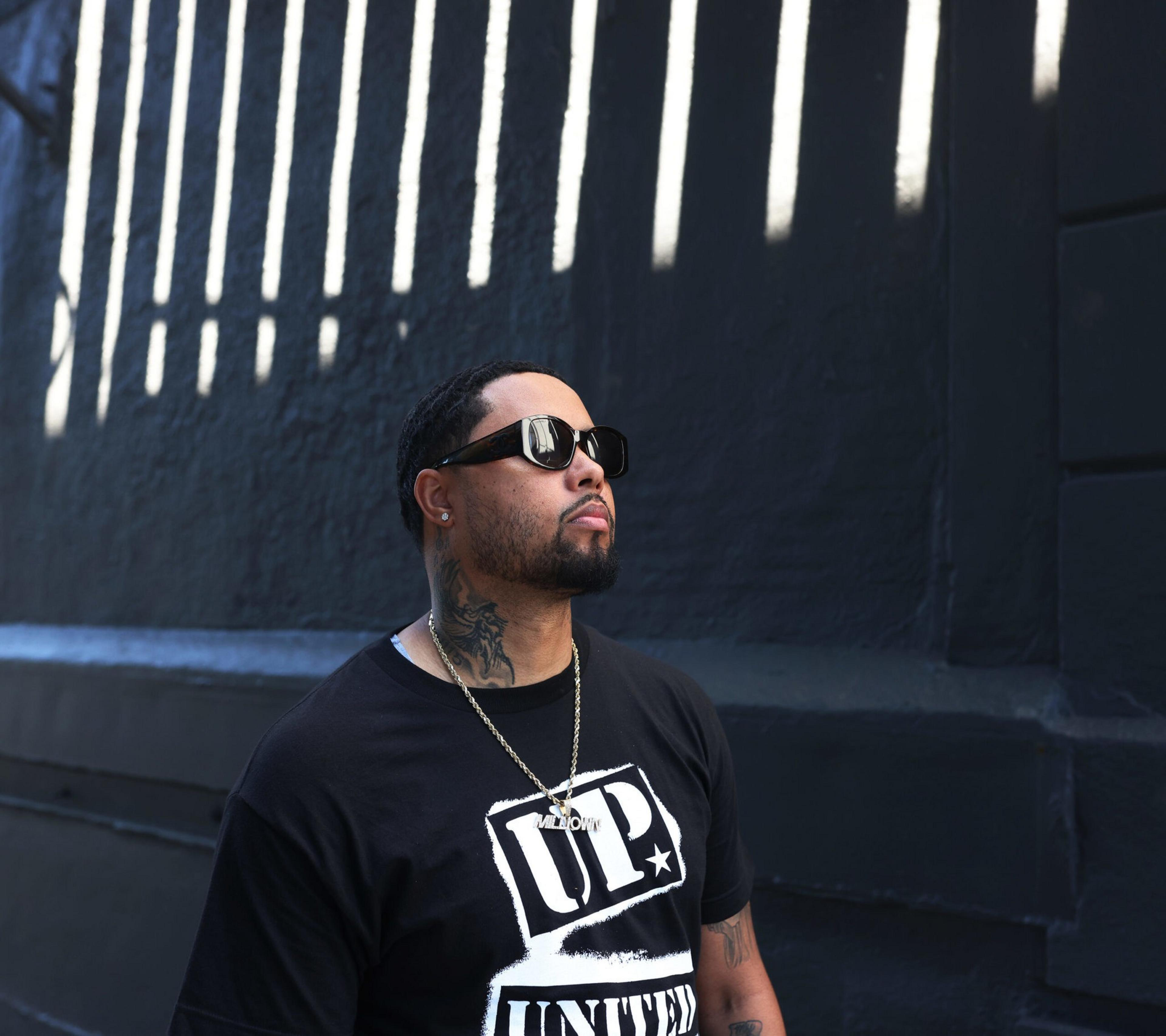“It takes the hood to save the hood.”
Whether you’ve seen these words printed in big white letters on the back of a black T-shirt or in a hashtag on Twitter or Instagram, the phrase has become a rallying cry for those who understand the challenges and struggles of inner-city communities. Its origins lie in the story of Rudy Corpuz Jr., a former gang member and drug dealer who turned his life around to become a beacon of hope for young people in San Francisco.
As the founder of the nonprofit organization United Playaz, Corpuz has dedicated himself to helping at-risk youth and ex-convicts find better life paths. Since 1994, he has been leading violence prevention education and job placement programs. His approach to building trust starts by sharing his own transformative journey of growing up in San Francisco’s SoMa District, having run-ins with the law and serving time in prison.
The majority of United Playaz staff and volunteers are also ex-convicts, and they regularly host events like gun buy-backs where people can turn in their firearms with no questions asked and receive cash. Corpuz has helped countless people throughout California turn away from violence and crime and embrace a brighter future by hosting that signature event and traveling the state to tell his story.

Now, his story could inspire the nation at large. A forthcoming biopic about Corpuz, titled SoMa: The Movie, is currently in pre-production. The film is directed by Bay Area actor, rapper and activist Jamal Trulove, who launched a crowdfunding campaign (opens in new tab) to raise startup funds for the film.
Trulove, who has appeared in hit shows such as Hulu’s This Fool, Netflix’s 13 Reasons Why, and most notably as Kofi in Joe Talbot’s critically acclaimed film, The Last Black Man in San Francisco, is stepping behind the camera to direct SoMa, because he wants to tell compelling stories about the Bay Area.
“I feel the film industry often uses the Bay Area as a backdrop and creates stories about what it’s like to live in places like San Francisco and Oakland, but there’s a big opportunity to tell stories about overlooked neighborhoods like Sunnydale and SoMa, and the real people who actually live here and have made an impact, like Rudy,” Trulove said.
While the film follows Corpuz’s journey, it represents various aspects of Trulove’s life coming full circle. Trulove grew up in San Francisco’s Sunnydale public housing, surrounded by crime and poverty. “It was tough,” Trulove said. “I was taught how to be good when you are inside the house, but once I stepped outside, it was a different story.”

At the time, growing up surrounded by concrete buildings, crack cocaine use and rampant crime was the only life Trulove knew, so he thought it was normal. “It wasn’t until around the age of 13 that I realized that it wasn’t normal and that my family didn’t own the house that I lived in,” said Trulove. At 13, Trulove also met Corpuz.
Trulove engaged with some of the programs at United Playaz but also had a passion for the performing arts. “I always wanted to get into film, but there were no resources for me to learn, so music ended up being the outlet for me to tell stories,” Trulove said.
He pursued a rap career, often selling CDs out of the back of his car, and he eventually worked his way out of public housing and dabbled in the entertainment industry, where he appeared on reality shows like VH1’s I Love New York as a contestant in 2007.
Shortly after his appearance on the show, Trulove was arrested for the fatal shooting of Seu Kuka. In 2010, Trulove was convicted and sentenced to 50 years to life in prison (opens in new tab). He spent six years behind bars before his conviction was overturned, and he was acquitted of all charges after he filed an appeal for a second trial in 2015.
In 2018, Trulove sued the city for his wrongful conviction and received a $13.1 million settlement. Trulove’s case drew national attention, shedding light on flaws in the criminal justice system.
“I missed the majority of my 20s, and I can’t make up for that time, but at the end of the day, I knew I had a purpose, a meaning, and that’s why I came home, and that’s why I am doing what I am doing now,” Trulove said.
After his release from prison, Trulove found himself back at United Playaz, where he worked as a case worker and mentor. One day, director Joe Talbot and actor Jimmie Fails visited the nonprofit looking for actors for The Last Black Man in San Francisco (opens in new tab). Trulove introduced himself and read a few times for Talbot and Fails before landing a role. “It was the first time I auditioned and the first role I ever got,” Trulove said.

His performance led to other acting opportunities, but his experience in working with Talbot and Fails inspired him to create his own production company, Tru Narrativ, through which he will direct biopics about powerful locals, starting with Corpuz, who believed in him all along.
“Rudy never tried to change me,” Trulove said, “just the decisions I was making.”